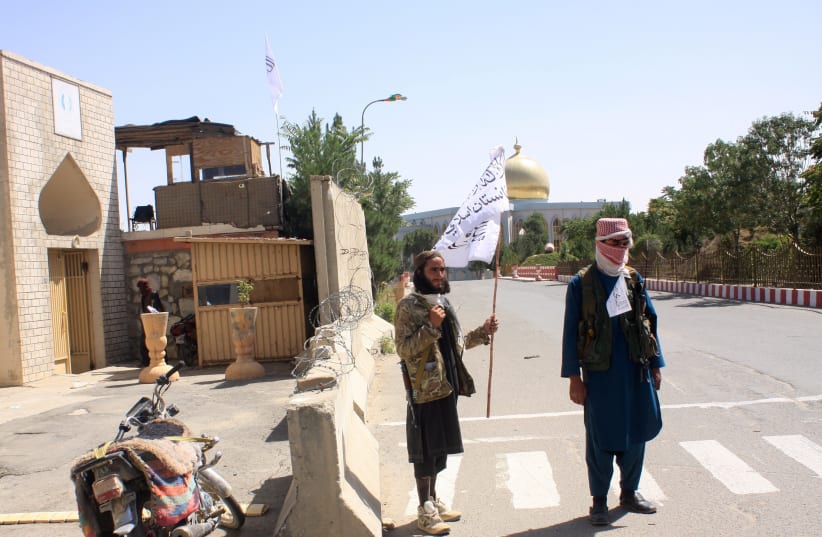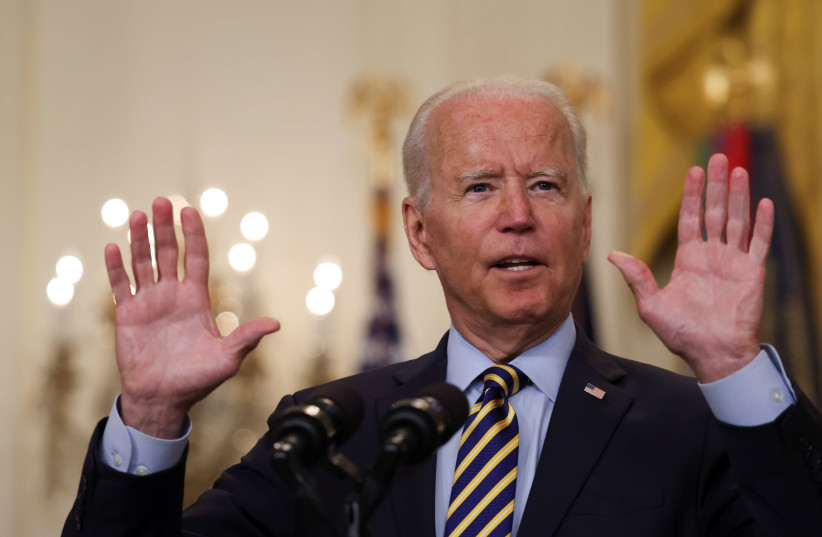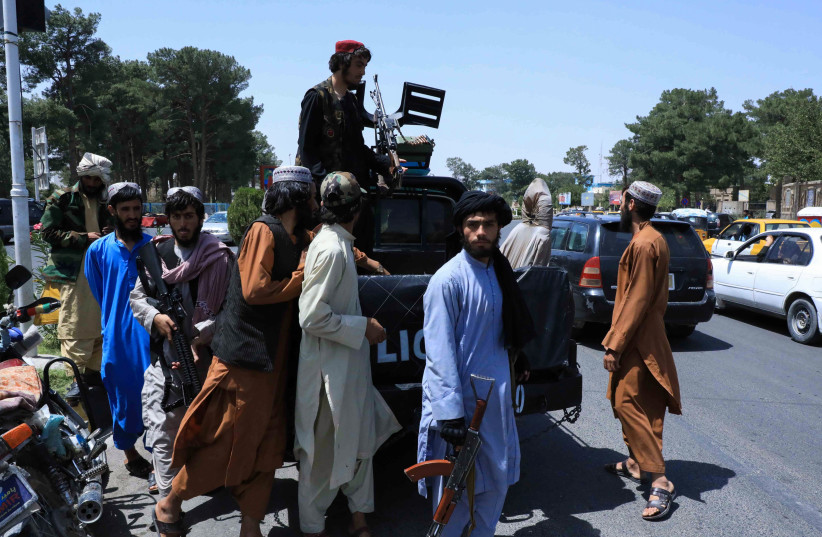The territory controlled by the crumbling Afghan government shrank to little more than Kabul on Sunday as the Taliban took the key eastern city of Jalalabad without a fight, while the United States sent more troops to help evacuate its civilians.
The fall of the last major city outside the capital secured for the insurgents the roads connecting Afghanistan to Pakistan, a western official said.
It followed the Taliban's seizure of the major northern city of Mazar-i-Sharif.
"There are no clashes taking place right now in Jalalabad because the governor has surrendered to the Taliban," a Jalalabad-based Afghan official told Reuters. "Allowing passage to the Taliban was the only way to save civilian lives."
The hardline militants have swept through the country in recent weeks as U.S.-led forces withdrew. The Taliban campaign accelerated to lightning speed in the last week, shocking Western countries as the Afghan military's defenses appeared to collapse.
U.S. President Joe Biden on Saturday authorized the deployment of 5,000 troops to help evacuate citizens and ensure an "orderly and safe" drawdown of U.S. military personnel. A U.S. defense official said that included 1,000 newly approved troops from the 82nd Airborne Division.
Taliban fighters entered Mazar-i-Sharif virtually unopposed as security forces escaped up the highway to neighboring Uzbekistan, about 80 km (50 miles) to the north, provincial officials said. Unverified video on social media showed Afghan army vehicles and men in uniforms crowding the iron bridge between the Afghan town of Hairatan and Uzbekistan.
Two influential militia leaders supporting the government - Atta Mohammad Noor and Abdul Rashid Dostum - also fled. Noor said on social media that the Taliban had been handed control of Balkh province, where Mazar-I-Sharif is located, due to a "conspiracy."
In a statement late on Saturday, the Taliban said its rapid gains showed it was popularly accepted by the Afghan people and reassured both Afghans and foreigners that they would be safe.
The Islamic Emirate (Taliban) "will, as always, protect their life, property and honor and create a peaceful and secure environment for its beloved nation," it said, adding that diplomats and aid workers would also face no problems.
CAPITAL INCREASINGLY ENCIRCLED
As the capital looked increasingly isolated as a government stronghold, Afghans streamed into Kabul, fleeing the provinces and fearing a return to hardline Islamist rule.
Hundreds of people slept huddled in tents or in the open in the city, by roadsides or in car parks, a resident said. "You can see the fear in their faces," he said.
Western governments were accelerating plans to evacuate their embassy staff, citizens and Afghans who had worked for them. American troops arrived in Kabul to protect the operation and keep control of the airport.
The British ambassador will leave the country by Sunday evening, UK media reported. The country, which was sending 600 troops, sped up the departure of Britons due to the rising risk that the Taliban would overrun the airport, the reports said.
Visa applications at embassies were running in the tens of thousands, officials said, and Washington was asking countries to temporarily house Afghans who worked for the US government.
CLOSING IN ON KABUL
Earlier the Taliban, facing little resistance, took Pul-e-Alam, capital of Logar province and 70 km (40 miles) south of Kabul, according to a local provincial council member, who spoke on condition of anonymity.
Police officials however denied reports that the Taliban had advanced closer to Kabul from Pul-e-Alam, which is a staging post for a potential assault on the capital.
Kandahar, the biggest city in the south and the heartland of the Taliban, fell to the militants' control on Friday as US-led forces complete their withdrawal after 20 years of war launched after the September 11 attacks on the United States in 2001.
Biden has faced rising domestic criticism as the Taliban have taken city after city far more quickly than predicted. The president has stuck to a plan, initiated by Republican former President Donald Trump, to end the US military mission in Afghanistan by August 31.
Biden said it is up to the Afghan military to hold its own territory. "An endless American presence in the middle of another country's civil conflict was not acceptable to me," Biden said on Saturday.
Afghan President Ashraf Ghani on Saturday held talks with local leaders and international partners, including U.S. Secretary of State Antony Blinken. Ghani and Blinken discussed urgent efforts to reduce violence in Afghanistan, the State Department said.
Qatar, which has been hosting so-far inconclusive peace talks between the Afghan government and the Taliban, said it had urged the insurgents to cease fire. Ghani has given no sign of responding to a Taliban demand that he resign as a condition for any ceasefire.
Hospitals were struggling to cope with the numbers of people wounded in the fighting, with 17,000 treated in July and the first week of August in facilities supported by the International Committee of the Red Cross, the aid agency said.
The explosion in fighting has raised fears of a refugee crisis and a rollback of gains in human rights, especially for women. Canada said it would resettle more than 20,000 vulnerable Afghans on Friday, including women leaders, human rights workers and reporters, to protect them from Taliban reprisals.


